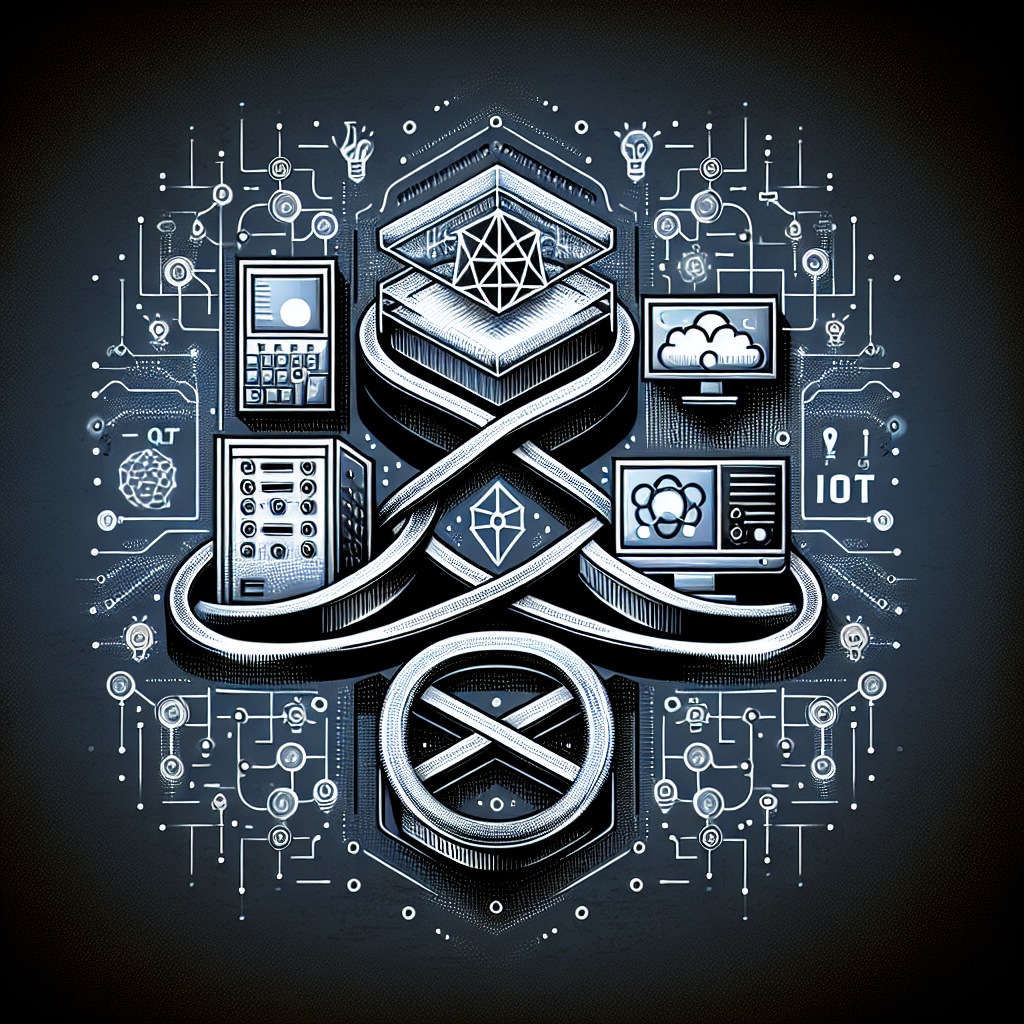The Convergence of Quantum Computing and Blockchain Technology
Understanding Quantum Computing
Quantum computing represents a significant shift from traditional computing paradigms. Whereas classical computers process information in binary using bits (0s and 1s), quantum computers utilize quantum bits or qubits. These qubits can exist in multiple states simultaneously, allowing quantum computers to perform vast calculations at unprecedented speeds. This capability positions quantum computing as a potential game-changer in various fields, including cryptography and data security.
The Role of Blockchain Technology
Blockchain technology is recognized for its decentralized and immutable ledger system. Each block in the blockchain contains a set of transactions that are linked together using cryptographic hashes. This structure ensures transparency and security, making it extremely difficult for malicious actors to alter any part of the chain without detection. Blockchain has applications ranging from cryptocurrencies to supply chain management, providing enhanced traceability and security.
Why Combine Quantum Computing and Blockchain?
The integration of quantum computing with blockchain technology presents solutions to some of the most pressing challenges faced in the Internet of Things (IoT) landscape. IoT devices are growing rapidly, with billions of devices connected globally. However, this growth has resulted in various security vulnerabilities, as many of these devices lack robust security mechanisms. By incorporating quantum principles into blockchain systems, we can enhance both security and efficiency.
Enhancing Security with Quantum Blockchain
Quantum Cryptography
Quantum cryptography promises unparalleled security. By utilizing quantum key distribution (QKD), it grants users the ability to exchange encryption keys with the assurance that any eavesdropping attempts will be detected. This level of security can help safeguard sensitive information exchanged between IoT devices, which often transmit data that can be exploited if intercepted.
The Challenge of Classical Adversaries
While classical encryption methods like RSA and AES are widely used, they are vulnerable to potential attacks from quantum computers. For instance, Shor’s Algorithm could effectively break traditional cryptographic schemes, making it crucial to adopt quantum-resistant encryption techniques. A quantum blockchain inherently offers advanced cryptographic practices that can protect against such threats, ensuring that sensitive IoT data remains secure.
Distributed Trust with Quantum Blockchain
One of the standout features of blockchain technology is its decentralized nature, which eliminates the need for a central authority. Quantum blockchain can enhance this decentralization by allowing nodes to quickly verify transactions using quantum algorithms, thus improving trust among participating devices. This is especially vital in IoT ecosystems, where devices interact autonomously without human intervention.
Reducing Single Points of Failure
Traditional security architectures often have singular points of failure, which can pose risks if compromised. By spreading data across a quantum blockchain, IoT systems become significantly more resilient. If one node experiences a security breach, it doesn’t compromise the integrity of the entire network, creating a more robust infrastructure for device communication.
Ensuring Data Integrity
In an IoT environment, countless devices generate and exchange vast amounts of data. Maintaining the integrity of this data is paramount. The use of quantum blockchain ensures that every transaction recorded is tamper-proof, as altering any block would require changing all subsequent blocks—a task that enters the realm of the practically impossible with quantum technology.
Improving Efficiency with Quantum Blockchain
Faster Transactions
The simultaneous processing capabilities of quantum computers can drastically reduce the time it takes to validate transactions on a blockchain. For IoT applications, where transactions often occur in real-time, this can lead to improved responsiveness and efficiency. Imagine smart cities where traffic signals, transportation systems, and public utilities communicate seamlessly in real-time to optimize performance.
Increased Throughput
Blockchain efficiency is often limited by the speed at which transactions can be processed. Quantum blockchain, however, can theoretically handle millions of transactions per second due to the superposition of qubits. This could transform our approach to data transactions in IoT, allowing for more devices to connect and operate concurrently without lag or bottlenecks.
Resource Optimization
The integration of quantum computing can also lead to more efficient resource utilization. Smart contracts, for instance, could analyze complex data more effectively and execute necessary actions without human intervention. This autonomy means IoT devices could minimize energy consumption, optimize performance, and extend the life of hardware by making decisions based on real-time data analysis.
Adaptive Smart Contracts
Quantum blockchain could enable the development of adaptive smart contracts, which learn and evolve based on previous transactions and data inputs. Such agreements would automatically adjust terms based on changing conditions or inputs, making them incredibly dynamic and efficient for IoT applications. This adaptability could reduce the need for constant human oversight and intervention.
Challenges and Considerations
Technological Limitations
Despite the promise of quantum blockchain, significant technological hurdles remain. Quantum computers are still in the experimental stage, and scalable implementations are yet to be realized. Early-stage blockchains may lack the rigorous testing necessary for widespread adoption, necessitating careful evaluation and development.
The Complexity of Integration
Integrating quantum computing with existing blockchain infrastructures poses its own challenges. Organizations must reassess their current systems and processes to accommodate quantum behaviors, which may require training and new protocols. This transition could be a barrier for enterprises and industries with established systems.
Regulatory and Ethical Implications
As quantum blockchain technology advances, regulatory frameworks must evolve to keep pace. The security and efficiency benefits must be balanced with ethical considerations, particularly concerning privacy. Policymakers will need to work closely with technology developers to ensure that new protocols respect individual rights while providing the benefits of quantum-enhanced capabilities.
The Importance of Collaboration
Collaboration between tech companies, regulatory bodies, and academic institutions will be crucial in navigating these uncharted waters. A collective approach can facilitate the development of best practices and standards that can ensure a secure and efficient deployment of quantum blockchain technologies across the IoT landscape.
The Future of Quantum Blockchain and IoT
While still in its infancy, the potential of quantum blockchain in the IoT arena is monumental. As quantum technologies continue to mature, businesses and industries must remain proactive in adopting and integrating these advancements. Whether through enhanced security, greater efficiency, or seamless operations, the future holds exciting possibilities for quantum blockchain in our increasingly interconnected world. Embracing these changes can lead to a more secure, efficient, and innovative digital ecosystem.








